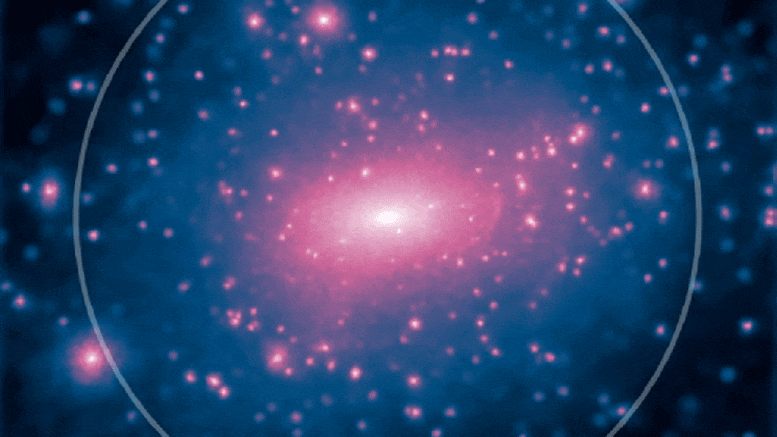The gravitational force in the Universe under which it has evolved from a state almost uniform at the Big Bang until now, when matter is concentrated in galaxies, stars and planets, is provided by what is termed ‘dark matter.’ But in spite of the essential role that this extra material plays, we know almost nothing about its nature, behavior and composition, which is one of the basic problems of modern physics. In a recent article in Astronomy & Astrophysics Letters, scientists at the Instituto de Astrofísica de Canarias (IAC)/University of La Laguna (ULL) and of the National University of the North-West of the Province of Buenos Aires (Junín, Argentina) have shown that the dark matter in galaxies follows a ‘maximum entropy’ distribution, which sheds light on its nature.
Dark matter makes up 85% of the matter of the Universe, but its existence shows up only on astronomical scales. That is to say, due to its weak interaction, the net effect can only be noticed when it is present in huge quantities. As it cools down only with difficulty, the structures it forms are generally much bigger than planets and stars. As the presence of dark matter shows up only on large scales the discovery of its nature probably has to be made by astrophysical studies.
